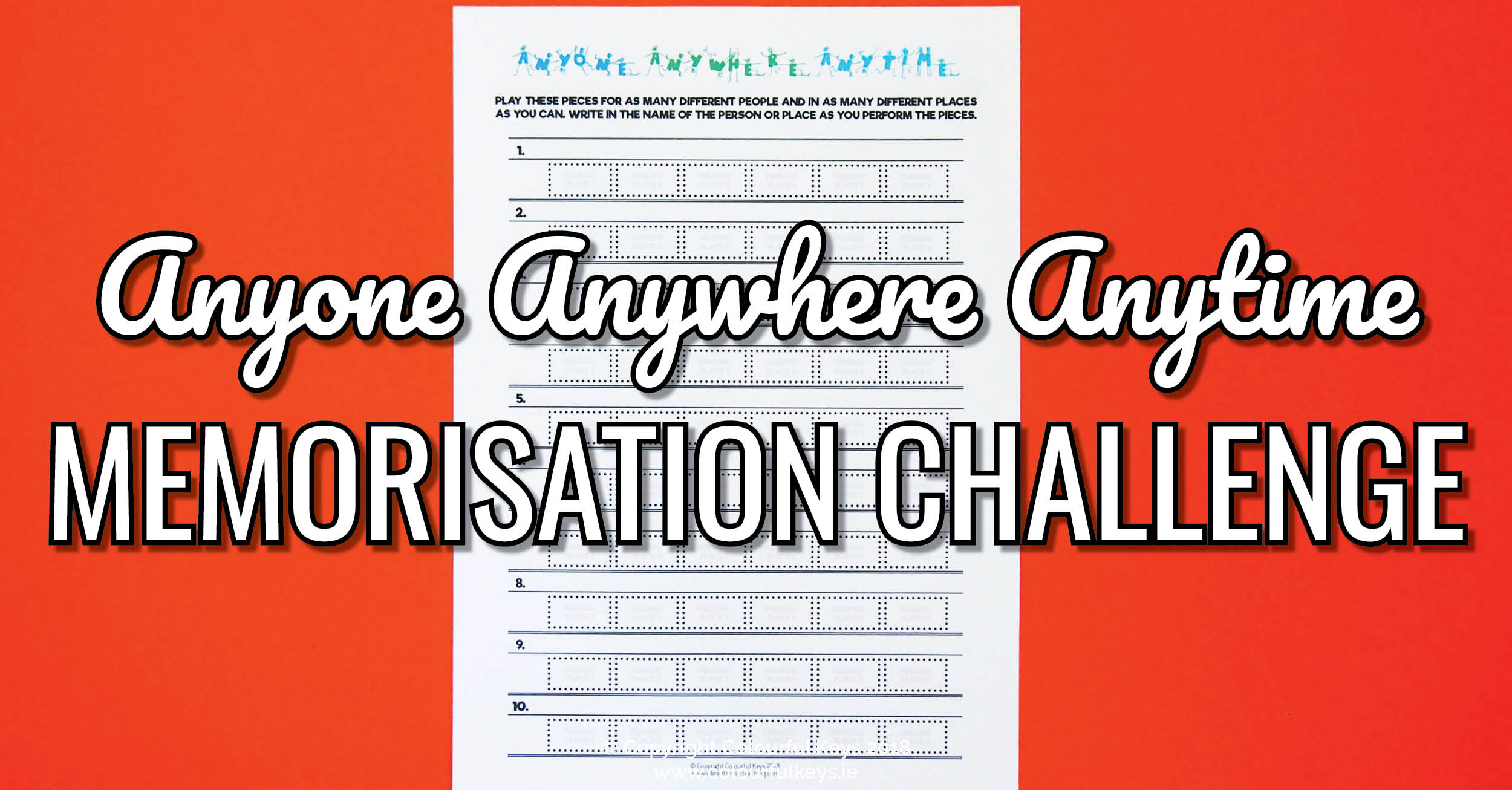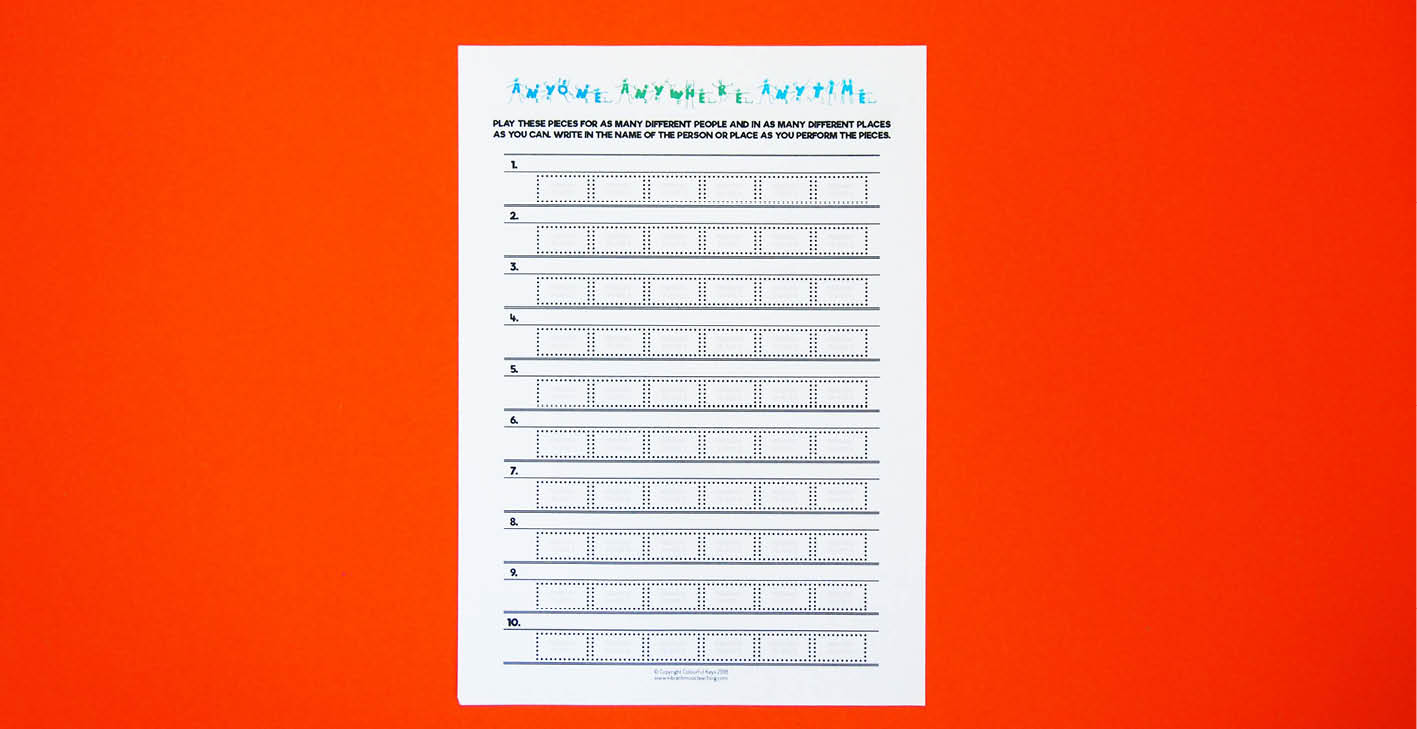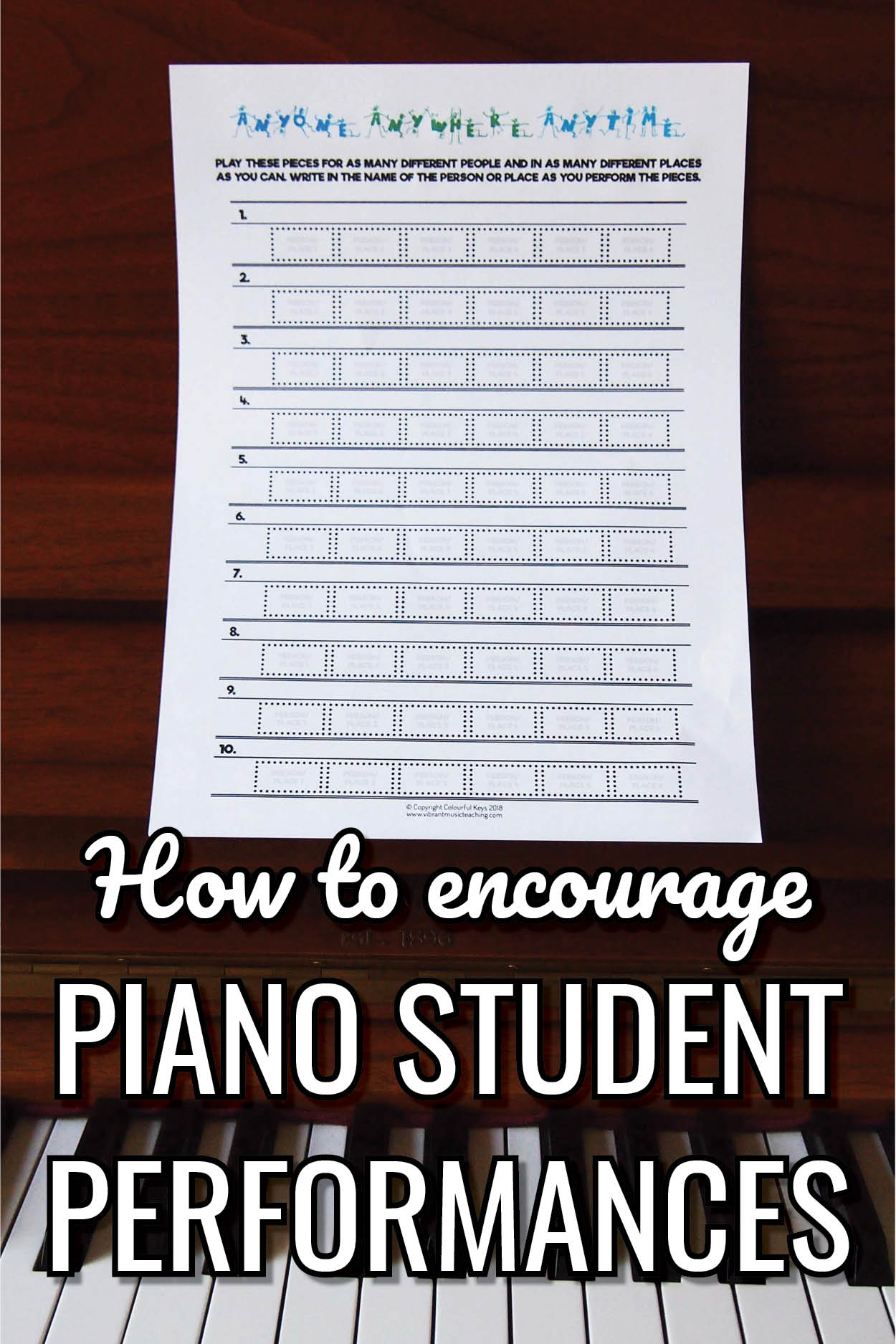There are two camps of piano teachers when it comes to piano student memorisation: those who grew up memorising their own music, and those who didn’t.
For those who memorised pieces as a child, the struggle is often with their students for whom memorisation just doesn’t come naturally, because it did for them. For those who didn’t (like me), the difficulty is in how to teach something we have so little experience with.

I memorised a piece for the first time at age 24. Yes, seriously.
Memorisation just isn’t expected here – it’s not the done thing. Piano recitals and exams are all done with music in front of you.
This might sound like a relief if you grew up somewhere where memorisation is required and always struggled with it. But I think it’s a hindrance too. I mean, how are you supposed to show-off your skills if you have to read everything? Carry a book around with you at all times?!
So, when it dawned on me that piano student memorisation was a standard thing elsewhere, that it wasn’t the reserve of pianists performing in the concert hall, I started to teach myself how to do it.
I detailed the full process of how I memorise a piece here. If you’re someone who memorises naturally, this will look painful and laboured. But trust me, it’s necessary for me (and probably for some of your students too).
I believe a big factor in being able to memorise pieces more easily is starting a child. Memorisation is still not required for my recitals but I want it to be part of the picture.
Anyone Anywhere Anytime
(I went hunting for the place I originally saw this when researching for this post because I definitely didn’t make it up. I couldn’t find it so do point me in the right direction if you know!)
A few years ago I started including an Anyone Anywhere Anytime list in my students’ folders. It’s since undergone several iterations and has now found its place onto my challenge board as well.
The idea of this list is to build up 10 pieces that a student:
- Loves
- Is super proud of & excited to show off
- Can play from memory
Teachers will have something similar under many different names.
How to Use This Piano Teacher Printable

Enter your details in this form and I’ll send you the Anyone Anywhere Anytime sheet as a bonus for subscribing. Vibrant Music Teaching members click here to find this in the library.
What to do with the sheet
- Print out the sheet and put it in your student’s practice folder/binder.
- As they finish pieces, ask if if it’s one of their favourites that they want to keep on their AAA list. If it is write it down on their list.
- If they haven’t already memorised the piece, work on memorisation.
- Explain that they should try to play these pieces in as many places and for as many different people as possible.
- Every week check in to see if they played it for someone new and get them to play their AAA pieces for you regularly so that they stay fresh.
- When they have 10 pieces that they have played in 6 places/for 6 different people they have achieved “Anyone Anywhere Anytime Excellence”. You may like to honour their achievement by displaying their name on the matching poster or awarding them with the sticker, both of which you can find in the challenge posters and stickers pack.
- It’s a good idea to start a fresh list once a year so that it stays relevant and up to their current level.
More Great Resources on Piano Student Memorisation
In putting together this challenge and this article, I came across some fantastic resources on piano student memorisation if you’re looking to dive further into the “how” and the “why” of memorising music.
- A few tips on memorising from Melanie Spanswick
- Controversial thoughts on memorising from Wendy Stevens
- Studying music away from the piano from The Curious Piano Teachers
Whether memorisation is second nature to you or completely alien, I hope you’ll find these resources as useful as I did. And I hope your students have fun with their Anyone Anywhere Anytime challenges!

So timely! I just printed an “Anytime, Anywhere” sheet for my students this past week. I hadn’t asked them to memorize the pieces on this list, but what a great idea.
Unfortunately when I put my name and email into the form to sign up, it leads me to a page that says the link is broken, and no email is sent to my address. Help?
Sorry about that Kara! Should be fixed now if you want to try again.
What a great idea!
I think that memorizing has its place. I regrettably don’t do much of it since I have to learn so much new music for my church job, and it just isn’t practical. However, I am testing out some different recital repertoire, some of which I will memorize and use that for premium performances.
For students, I think it shows when it comes to recital time. Others have pointed it out to me as well. When students have to memorize a piece, their performance is by far superior than if they just had the book in front of them. It forces them to think about and experience a piece in ways they wouldn’t bother to do otherwise.
I think it’s important not to make it all about memorization, but for a couple of special pieces, absolutely! And I carry a few Piano Miniatures around with me at all times, so that if I ever were called on to play, I’m ready. It’s stuff like the Minute Waltz, the Rondo Alla Turca, and even a Strauss Waltz transcription.
Sounds like a great balance to me Broc. 🙂
My students each have a collection of “Favorite Pieces,” similar to your AAA list. When it’s recital time, they choose their most favorite piece to be their recital piece. That way, learning doesn’t have to stop just because a recital is taking place next month. We spend 5 minutes or less on recital pieces during the month leading up to a recital, because the child has been playing it well from memory for a while. If they perform their favorites for others like you suggest, it helps with nerves because performance becomes a normalized experience for students, not once-in-a-blue-moon.
Interestingly, cognitive psychologists consider learning & memory to be two sides of the same coin. They would laugh at us piano teachers for saying “my students learn music but they don’t memorize it,” because in the psychology world, learning & memorization are the same thing. Students DO have to memorize in order to play a piece while looking at the score, it’s just not as secure of a memory as playing without the score. The score provides visual retrieval cues, but the reading process eats up valuable working memory, so students don’t have as much brain capacity to focus on dynamics, articulation, etc. If students can play without the score, relying on auditory & structural retrieval cues (i.e. knowing where you are in the form of a piece), then it reduces cognitive load and allows them to focus on dynamics & other interpretive aspects of performance.
Very interesting! Thanks for sharing ML!
I think the “Anytime Anywhere” came from Teach Piano Today. They have stickers on their blog that you can download and print: https://www.teachpianotoday.com/2017/01/16/5-printables-to-stick-to-the-top-of-your-piano-students-music/
Dana
Thanks Dana! 🙂